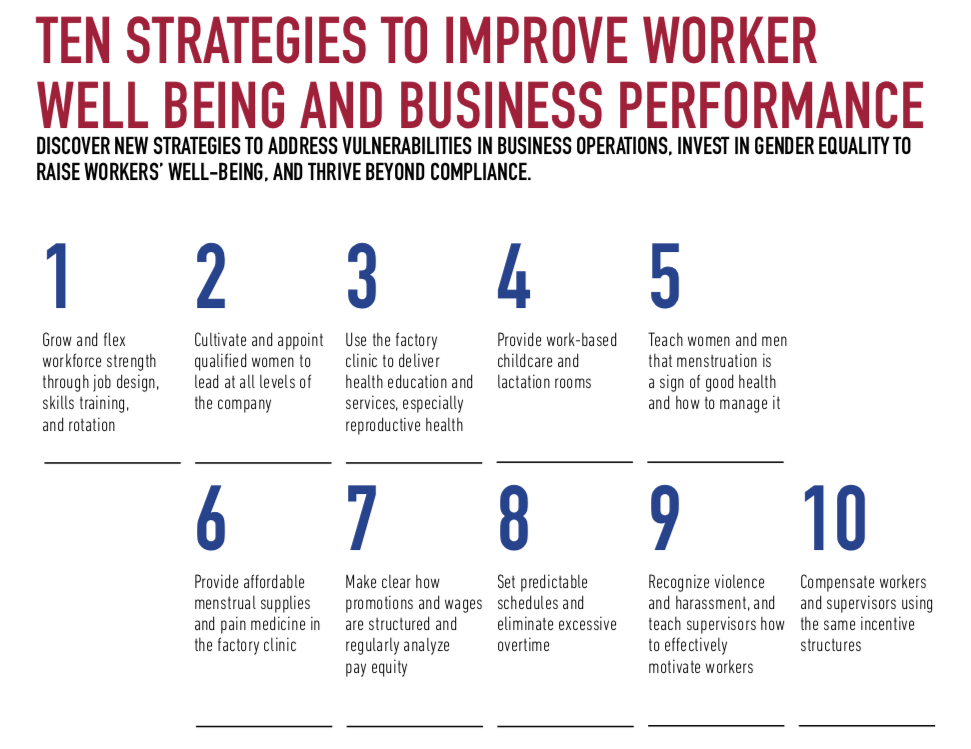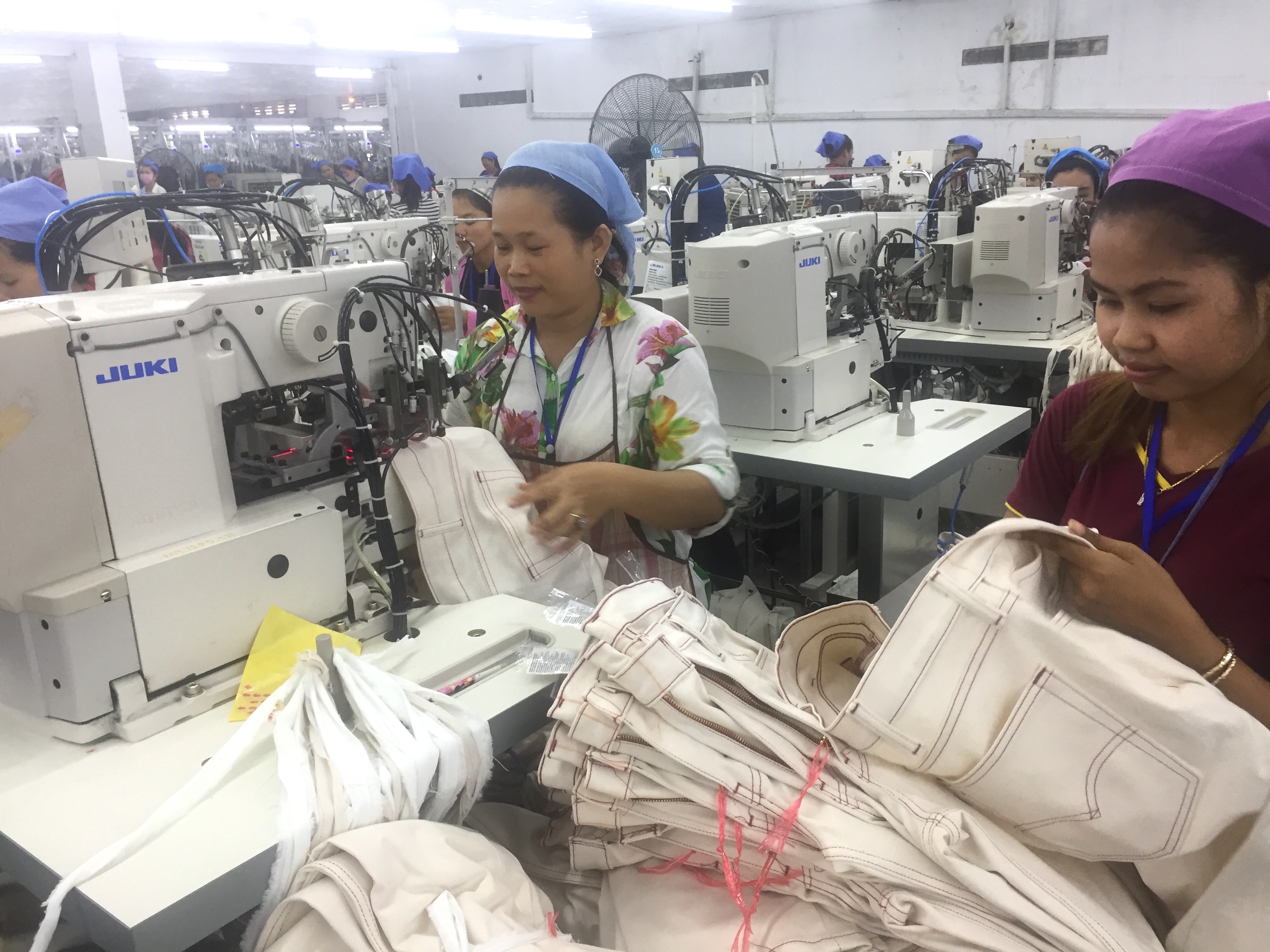With women making up more than 80 percent of the global workforce in the apparel supply chain, LS&Co. is expanding its efforts to support and empower the women working across its supply chain.
By 2020, our Worker Well-being program, which began as a project of the Levi Strauss Foundation, will have reached more than 200,000 people in factories around the world – the vast majority of them women – providing guidance on health, economic planning, and other facets of work and life that impact well-being for individuals and families. Our Terms of Engagement for suppliers also contain stringent, zero-tolerance policies on sexual harassment and coercion in the workplace. Additionally, new programs and partnerships targeted towards women are being rolled out in several locations.
Last year, Better Factories Cambodia (BFC) and UN Women, with funding from the Levi Strauss Foundation, piloted the “Female Leadership Program” across Cambodia. Though specific to Cambodia, the program addresses conditions seen in many manufacturing regions where mostly young women work far from home, away from families and support networks, with predominantly male managers.
In these circumstances, women are often disinclined to speak up for themselves, particularly in worker-management committees where they tend to defer to male counterparts, especially supervisors. Discussions are therefore less likely to address women’s needs or prioritize gender equity, which can help cultivate work environments where women are less vulnerable to exploitation, harassment and coercion.

Before launching its programs, BFC conducted focus groups with worker-management committees to better understand the challenges female workers face. These sessions highlighted the need to help women better recognize gender and power dynamics, better appreciate their own self-worth, and develop leadership skills they can use to better represent themselves and amplify their voices.
Throughout the pilot phase, participants repeatedly said the lessons were relevant to both their work and home lives. The trainers also saw the impact. “This is one of the most powerful trainings we have conducted,” said Vichhra Mouyly and Sovanthyda Tan. Some conversations were emotional and difficult, touching on subjects that participants had never talked openly about before, but “we could see the ‘a-ha’ moments when the women realized they had power inside themselves and started to change the way they valued themselves.”
As one participant said, “Thank you for giving me the chance to realize who I am and to become a better leader. I realize now that I can make a difference. I can help make change. I can communicate. I can add value at work and at home. I have found my confidence.”
The Female Leadership program in Cambodia complemented the gender-focused report the Levi Strauss Foundation published last year, “Ten Strategies to Improve Worker-Well Being and Business Performance.” The report as a whole sought to make the case that it’s not just workers or women who benefit from enhanced worker well-being, but also businesses in the form of better performance and retention. The BFC program in particular equips factories to implement two of the recommended strategies outlined in the 2018 report: “Grow and flex workforce strength through job design, skills training and rotation” and “Cultivate and appoint qualified women to lead at all levels of the company.”

BFC plans to train women from up to 80 factories in Cambodia this year. And LS&Co. will continue to scale successful and innovative pilot approaches, such as this one, in order to reach greater impact. “Our commitment to worker well-being recognizes that most apparel workers are women” says Kim Almeida, Director of Worker Well-being at the Levi Strauss Foundation. “We are committed to developing programs and strategies that meet their needs and help foster a safe, productive workplace where their voices are heard.”







